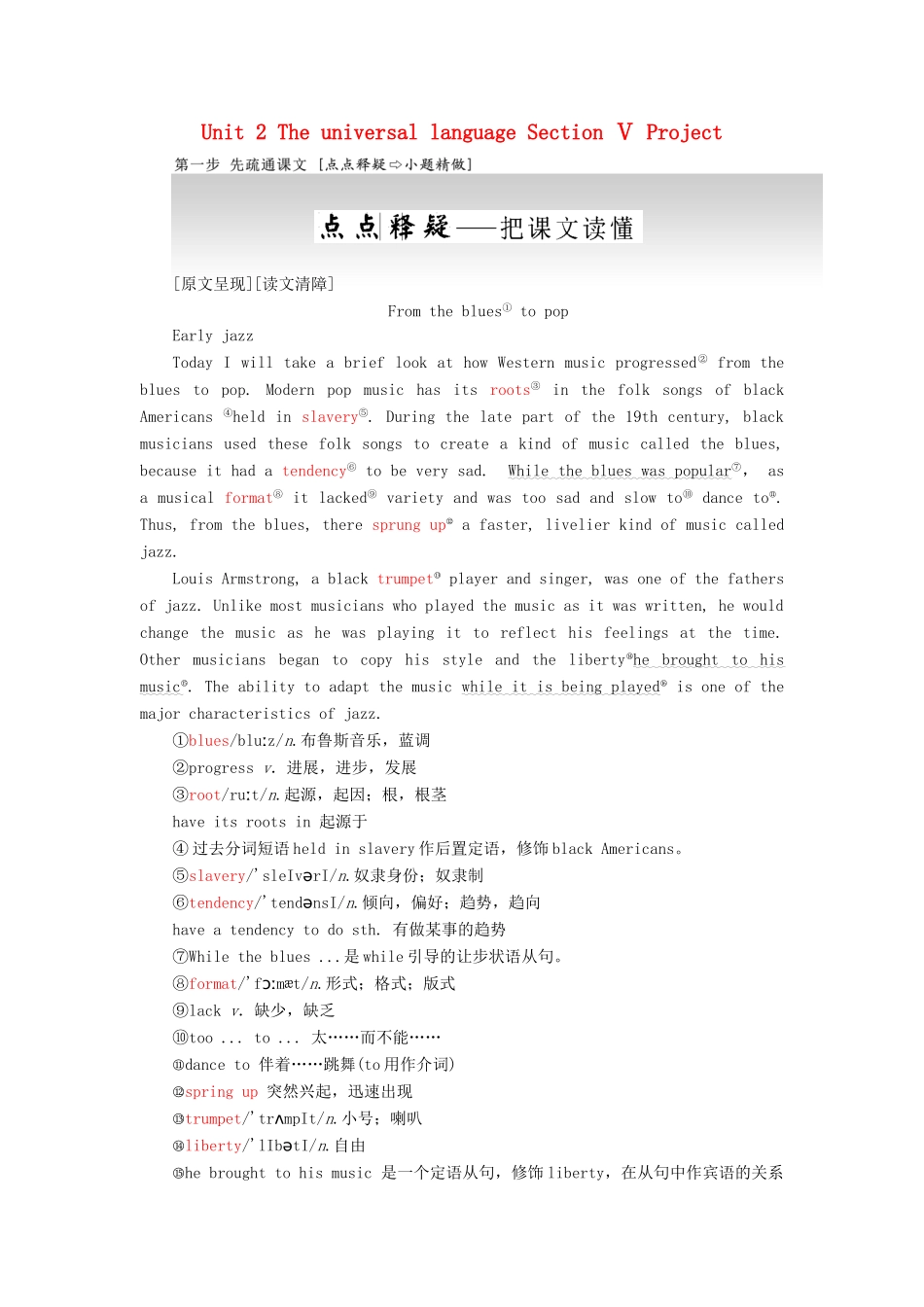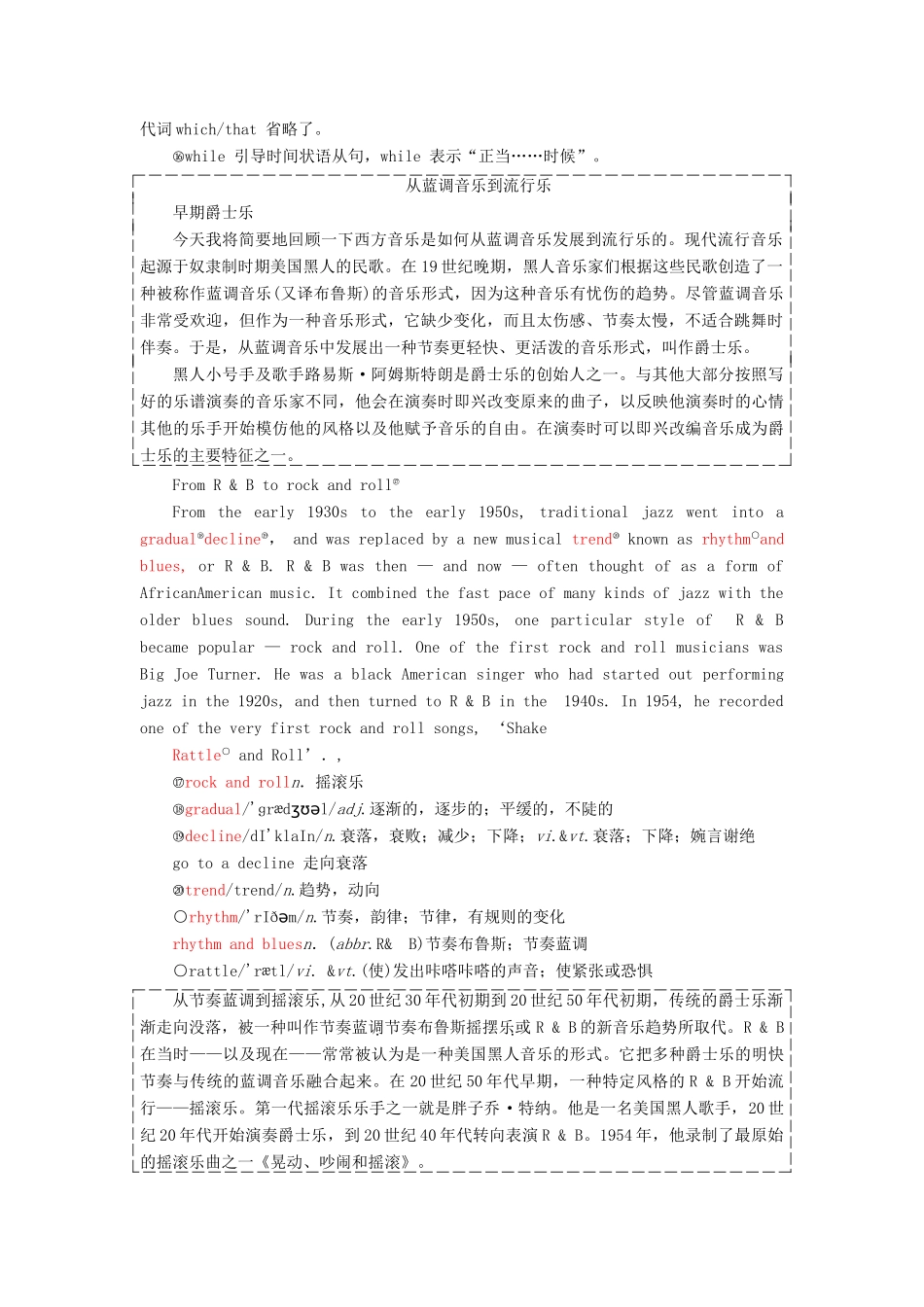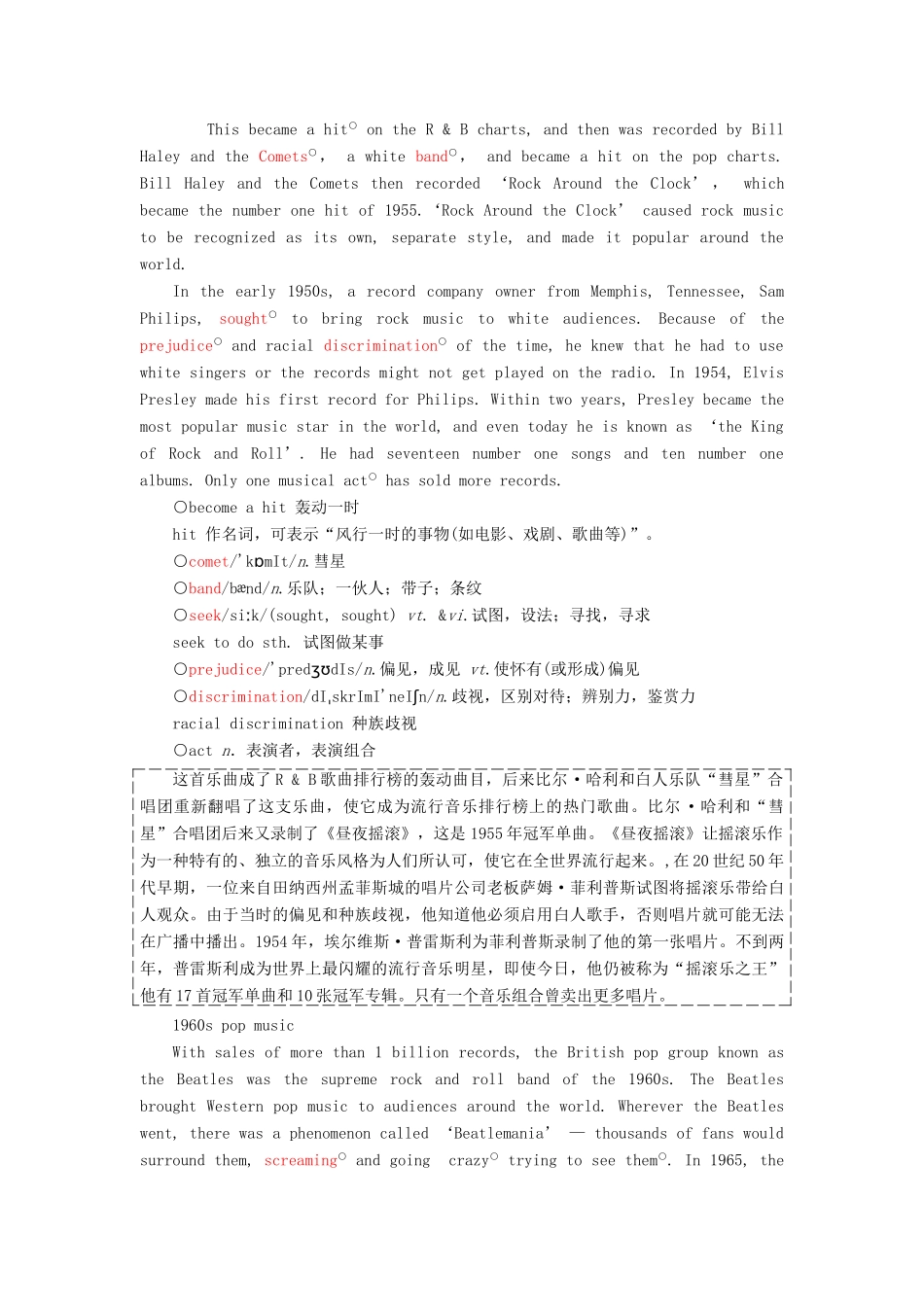Unit 2 The universal language Section Ⅴ Project [原文呈现][读文清障]From the blues① to popEarly jazzToday I will take a brief look at how Western music progressed② from the blues to pop. Modern pop music has its roots③ in the folk songs of black Americans ④held in slavery⑤. During the late part of the 19th century, black musicians used these folk songs to create a kind of music called the blues, because it had a tendency⑥ to be very sad. While the blues was popular⑦, as a musical format⑧ it lacked⑨ variety and was too sad and slow to⑩ dance to⑪. Thus, from the blues, there sprung up⑫ a faster, livelier kind of music called jazz.Louis Armstrong, a black trumpet⑬ player and singer, was one of the fathers of jazz. Unlike most musicians who played the music as it was written, he would change the music as he was playing it to reflect his feelings at the time. Other musicians began to copy his style and the liberty⑭he brought to his music⑮. The ability to adapt the music while it is being played⑯ is one of the major characteristics of jazz.①blues/blu z/ːn.布鲁斯音乐,蓝调②progress v.进展,进步,发展③root/ru t/ːn.起源,起因;根,根茎have its roots in 起源于④ 过去分词短语 held in slavery 作后置定语,修饰 black Americans。⑤slavery/'sleIv rI/ən.奴隶身份;奴隶制⑥tendency/'tend nsI/ən.倾向,偏好;趋势,趋向have a tendency to do sth. 有做某事的趋势⑦While the blues ...是 while 引导的让步状语从句。⑧format/'fmæt/ɔːn.形式;格式;版式⑨lack v.缺少,缺乏⑩too ... to ... 太……而不能……⑪dance to 伴着……跳舞(to 用作介词)⑫spring up 突然兴起,迅速出现⑬trumpet/'tr mpIt/ʌn.小号;喇叭⑭liberty/'lIb tI/ən.自由⑮he brought to his music 是一个定语从句,修饰 liberty,在从句中作宾语的关系代词 which/that 省略了。⑯while ...


